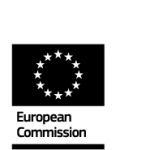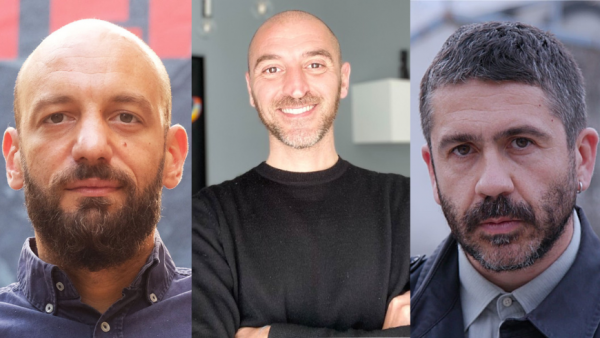Greek journalist Dimitris Danikas is well-known for his long career as a film critic for various media. What is less widely known about him is his patience and persistence: it took him almost 13 years to finally claim victory in an insult lawsuit against him.
The thought of giving up never crossed his mind, Danikas told the International Press Institute (IPI) in a recent interview.
Indeed, his own deep belief in his innocence was finally vindicated this past January, when the European Court of Human Rights (ECHR) found that Greek courts had violated Danikas’s right to freedom of expression under Art. 10 of the European Convention.
“Completely unknown”
The saga started in December 2004, when Danikas was working as a journalist and columnist at the daily newspaper ‘TA NEA.
“On that day, I was informed about the recent appointment of an actress called P.M. as a member of the grant advisory board of the Ministry of Culture’s theatre department,” Danikas recalled.
“I was truly surprised since I had never heard her name before and no one else seemed to know her either. So, her selection appeared to have been effected according to political criteria rather than based on her expertise and career.”
Danikas proceeded to write an article for the paper describing the actress as “completely unknown”. It was this article that marked the beginning of the 13-year judicial ordeal.
Claiming that she had been unlawfully insulted, the actress filed suit against Danikas, the editor of ‘TA NEA, and the newspaper’s publisher. In June 2006, a court in Athens agreed, and ordered the three defendants to pay a total of 30,000 euros in damages.
According to the court, the phrase “completely unknown” had overstepped the limits of legitimate criticism and had not been objectively necessary for the view that Danikas aimed to express. The judgment also stated that, by using those words, Danikas had sought to damage the actress’s honour and had voiced suspicion about her moral and social status.
Two years later, in December 2006, the three defendants appealed the ruling before the Athens Court of Appeal. They did not have better luck.
In August 2007, the Court of Appeal confirmed the lower court ruling. As a consequence, the newspaper paid the actress the judgment amount of 30,000 euros.
Danikas and the others still refused to give up and brought their case to Greece’s supreme court – again, the result was the same.
In December 2011, the Supreme Court dismissed the appeal, and ordered the defendants to reimburse the actress 2,700 euros in legal expenses.
It goes without saying that most people would have give up by now, after years of rejection by the courts. Danikas saw the situation differently.
“I believed in my innocence more than in anything else,” he said. “So I just kept on fighting. Of course had it not been for my lawyer and his team, who were also quite persistent, I don’t believe I would have managed to get this fair.
In addition to his legal team, Danikas also enjoyed the confidence and financial support of ‘TA NEA.
“I have to admit that the newspaper I was working for at the time and full faith in me and – cover call – covered all the legal expenses. That is something once cannot see happening nowadays very often.”
Buouyed by this support, Danikas made one last appeal: on Aug. 7, 2012, he, together with the now former editor of ‘TA NEA’s editor, Pantelis Kapsis, took their case to the European Court of Human Rights. And, for the first time after almost 13 years, they would finally manage to hear a decision that made them smile with relief.
The vindication
In its ruling, the ECHR applied basic principles it had developed over the years to protect the press from the abuse of libel and insult laws.
For one, it found that the expression “completely unknown”, when read in context, was a value judgment and therefore not subject to proof. That value judgment, the court continued, was “not devoid of factual basis” given that, in fact, the actress had not previously held a public position.
For another, the court ruled that the Greek courts had not properly assessed the context of the case.
It stated: “The role of the domestic courts in such proceedings does not consist in telling an author what style to use when exercising his right to criticise, however harsh the criticism might be. Rather, the courts must examine whether the context of the case, the public interest and the author’s intention justified the possible use of a degree of provocation or exaggeration”.
The ECHR highlighted, for example, the fact that Danikas’s writing was generally “characterised by a caustic tone with regard to all persons and situations who are the object of his commentary”.
It also noted that, since the actress had been appointed as a member of a board on government subsidies, she could not be considered as a private person.
Therefore, the court concluded, the actress “should have expected that her nomination would be subjected to a scrupulous examination on the part of the press, including severe criticism”.
Finally, the ECHR also raised concern with regard to the amount of damages awarded in the case. The fact that the judgment was paid by the newspaper did not change the fact that “such sanctions inevitably risk discouraging journalists from contributing to public discussions on topics of interest to the wider community”.
Greece was ordered to pay Danikas and Kapsis 2,000 euros each in moral damages, and to reimburse Kapsis 1,500 euros in legal expenses.
No right to dictate journalistic style
Vassilis Chirdaris, a human rights lawyer, who, together with Christoforos Argiropoulos, formed the legal team that represented Danikas highlighted the significance of the ruling in an interview with IPI.
“One of the most important aspects deriving from the judgment is the fact that it clarifies for the first time that the national courts have no right or jurisdiction to dictate the way and the style of a journalistic critique”, he said.
Chirdaris also noted that the case extends the meaning of “public figure” to include persons who only indirectly participate in political activities (e.g., participation in advisory boards).
“The court also specifies that the alleged defamatory comments must be taken into account in the general context of an article and not out of the general context,” he commented. “It also describes the role of the journalist as the watchdog of democracy, which means that the role of the press is not only the passive preservation of the democracy but also the active, and sometimes excessive, defense of democracy.”
Danikas, who never lost faith, seems more relaxed now that he can put an end to a story that haunted him for more than 13 years.
“I am being completely honest when I say that this case did not make me change the way I write or criticise,” he said. “As long as I am writing the truth, I know that I have the moral advantage and nothing to be afraid of.”
After this breakthrough decision, perhaps more and more of his colleagues in Greece will feel the same way.




